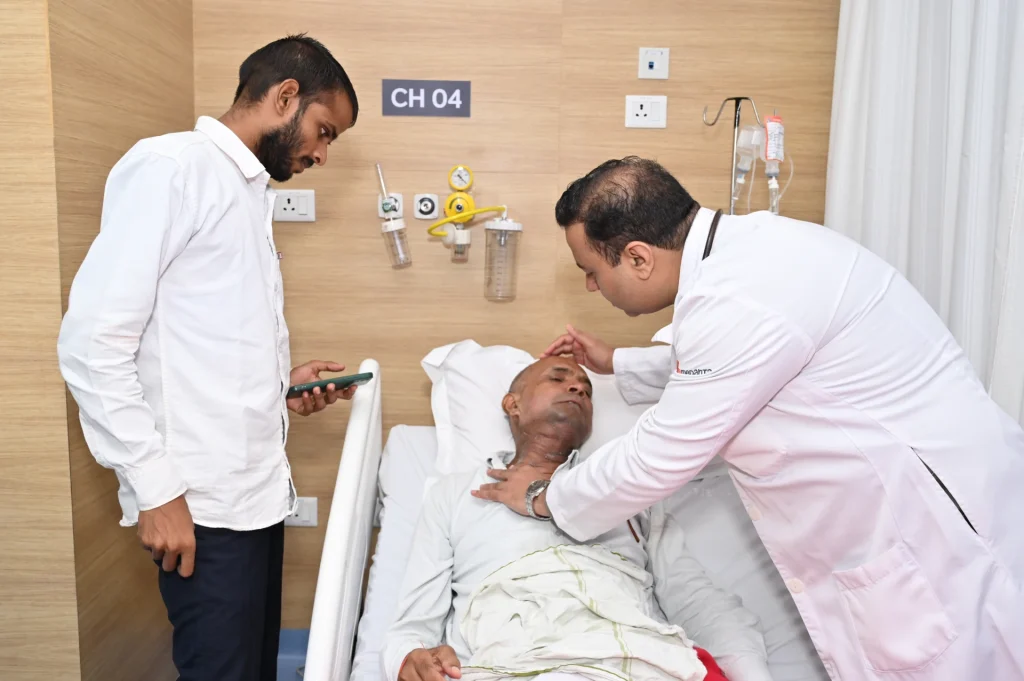- CANCER HELPLINE: 1800-22-1951
- 91 7317418888
- contact@drharshatreya.com
- CANCER HELPLINE: 1800-22-1951

Sed ut perspiciatis unde omnis iste natus error sit voluptatem accusantium doloremque laudantium, totam rem aperiam, eaque ipsa quae ab illo inventore veritatis et quasi architecto beatae vitae dicta sunt explicabo. Nemo enim ipsam voluptatem quia voluptas sit aspernatur aut odit aut fugit, sed quia consequuntur magni dolores eos qui ratione voluptatem sequi nesciunt. Neque porro quisquam est, qui dolorem ipsum quia dolor sit amet, consectetur, adipisci velit,
Diagnosis of stomach cancer typically involves a series of tests, including imaging, lab tests, and biopsy:
Endoscopy: A small camera on a flexible tube is inserted down the throat to examine the stomach lining and detect abnormalities. During this procedure, tissue samples (biopsy) can be taken for testing.
Imaging Tests:
CT (Computed Tomography) Scan: Helps determine the cancer’s location and whether it has spread.
PET (Positron Emission Tomography) Scan: Useful in detecting metastasis (spread of cancer).
Barium Swallow X-Ray: Involves drinking a liquid that outlines the stomach on an X-ray to show abnormalities.
Biopsy: During an endoscopy, a biopsy is often taken to confirm cancer by analyzing the stomach tissue.
Lab Tests: Blood tests may reveal anemia or markers that suggest stomach cancer.
Treatment for stomach cancer depends on the cancer stage, type, and overall health. Common treatment options include:
Surgery:
Endoscopic Mucosal Resection: In very early-stage cancers, this endoscopic procedure removes tumors without surgery.
Partial Gastrectomy: Removes part of the stomach, often used when the cancer is confined to one area.
Total Gastrectomy: In more advanced cases, the entire stomach may need to be removed, with the esophagus directly connected to the small intestine.
Chemotherapy: Uses drugs to kill cancer cells. It can be given before surgery (neoadjuvant therapy) to shrink the tumor or after surgery (adjuvant therapy) to eliminate any remaining cancer cells.
Radiation Therapy: Uses high-energy beams to kill cancer cells. Radiation is often used in combination with chemotherapy for more effective results.
Targeted Therapy: In cases where specific proteins are present on cancer cells, drugs like trastuzumab can target these proteins to slow or stop cancer growth. This treatment is often effective in HER2-positive stomach cancer cases.
Immunotherapy: Medications like pembrolizumab can help the immune system recognize and attack cancer cells, especially in advanced stomach cancer.
Clinical Trials: New treatments, including drug combinations and personalized therapy approaches, are being explored through clinical trials, providing additional options for patients.
© 2024 Harshvardhan Atreya. All Rights Reserved.